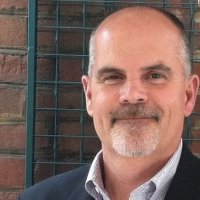Reposted with permission.
Warren Wong on Unsplash
By Joe Pyle
“A system cannot fail those it was never meant to protect.” -W.E.B. Du Bois
Last week we saw yet another killing of a Black man rise to the nation’s consciousness. Daniel Prude was just 41 years old. He was a father of five adult children who lived in Chicago with his sister, Tameshay. He was beloved by his family.
In March, Daniel experienced a psychotic episode. Fearing for his health and safety, his sister sent him to stay with their brother, Joe, in Rochester, NY. It was there that Daniel sought care in a hospital setting but was released within three hours with no diagnosis. Now widely covered in the news, what happened next involved the criminalization of his mental illness, resulting in a horrific incident of police brutality.
This is a story of what happens when multiple systems put a human life in jeopardy. As a behavioral health foundation, we know that people with serious mental illness are overrepresented in the criminal justice system and are more likely to experience violence than to be perpetrators of it. We also know that, as a Black man, Daniel was at a significantly higher risk of receiving inadequate health care and experiencing violence from police. Rather than understand and address the vulnerabilities that our systems created for Daniel, they were weaponized to endanger, and ultimately take his life.
Our systems can and must be better. Centering the dignity and value of human life must guide how we create policy and build systems of care.
The Sequential Intercept Model offers strategies that could have saved Daniel’s life. Developed in the 2000s, the Sequential Intercept Model is a conceptual framework for creating community-based responses for people with behavioral health disorders in the criminal justice system. At Intercept Zero, a recent addition to the Sequential Intercept Model, the behavioral health system could have treated his psychotic episode and worked with his family and community to ensure that Daniel had tools and resources for recovery. At Intercept One, an intervention could have minimally included a Crisis Intervention Team with law enforcement officers who are trained in interacting with individuals experiencing a mental health crisis. Perhaps even more effective, responders should not have even included police at all. Rather, the 911 call could have been redirected to behavioral health professionals who are best suited to handle the situation, as the CAHOOTS (Crisis Assistance Helping Out On the Streets) program in Eugene, OR has done. We must challenge our systems to not only adopt models like these, but to ensure that they are well-resourced and implemented with fidelity.
In Philadelphia, many evidence-based practices have been implemented to divert individuals with behavioral health disorders from the criminal justice system. Our network of Crisis Response Centers aim to provide 24/7 care for individuals experiencing a mental health crisis. Police officers receive Mental Health First Aid and Crisis Intervention Training. The school district has partnered with the police department to develop the Philadelphia Police School Diversion Program to halt the school-to-prison pipeline. We have a Mental Health Court and a slew of other Behavioral Health Justice Related Services.
Despite these wide ranging interventions, 17 percent of Philadelphia’s inmates have a serious mental illness. This is vastly disproportionate to the five percent of the general population who experience serious mental illness.
Our systems have a long way to go. We must apply a racial justice lens and trauma-informed practices at every step of the way. We need deep collaboration between systems with data-sharing agreements that can help us to learn and make decisions. Robust evaluation efforts to assess fidelity and impact are critical for understanding what works and why. We must prioritize humanity as we reenvision and transform services.
Daniel Prude’s life mattered. We mourn the loss of his life and offer our deepest condolences to his family and community. We know that his death was preventable and we are committed to building systems that protect and care for people like Daniel.
Learn more about the Sequential Intercept Model and other strategies for justice-involved individuals with serious mental illness in our Think Bigger Do Good Policy Series:
- Improving Outcomes for People with Serious Mental Illness and Co-Occurring Substance Use Disorders in Contact with the Criminal Justice System by Glenda L. Wrenn, MD, MSHP, Brian McGregor, PhD, and Mark R. Muntez, MD
- Bringing Treatment Parity to Jail Inmates with Schizophrenia by Mark R. Munetz, PhD, Erik Messamore, MD, PhD, and Sara E. Dugan, PharmD, BCPP, and BCPS
- Meeting the Needs of Justice-Involved People with Serious Mental Illness within Community Behavioral Health Systems by Natalie Bonine, PhD, Amy Blank Wilson, PhD, LSW, and Mark R. Munetz, MD
Joe Pyle is president of the Thomas Scattergood Behavioral Health Foundation.


